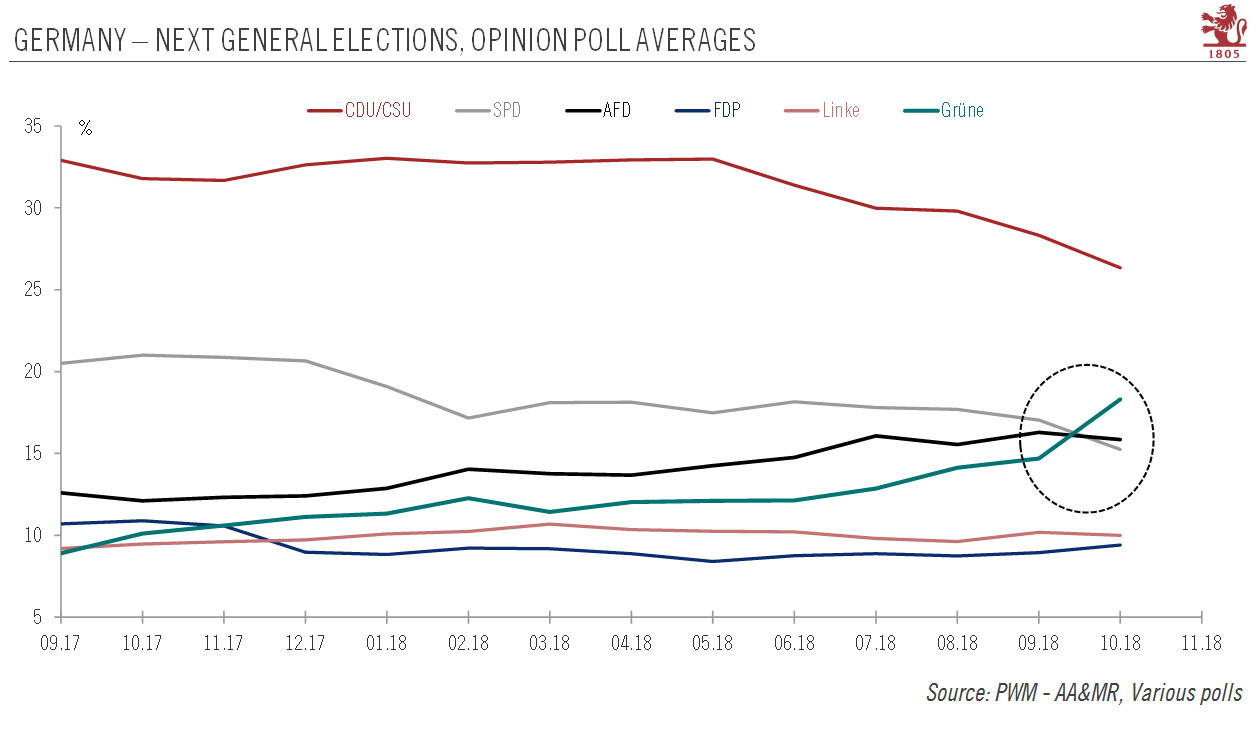The transition to new leadership in Germany could have implications for Europe as a whole.As a consequence of the heavy drop of support in recent regional elections, Chancellor Merkel has declared she would not run again for leadership of the CDU at the 6-8 December party convention. Merkel also said she would retire from politics at the end of the current parliament in 2021. It is questionable whether she will get that far, and well before then, the transition to a new leader amid a loss of electoral support for the main centre-right and centre-left parties in Germany could have implications for the EU as a whole.The leadership contest can be counted on to lead to intense internal debate about the CDU’s position on Europe, taxes and immigration. So far, three main contenders to take over
Topics:
Nadia Gharbi considers the following as important: Angela Merkel, European politics, German instability, German politics, Macroview
This could be interesting, too:
Cesar Perez Ruiz writes Weekly View – Big Splits
Cesar Perez Ruiz writes Weekly View – Central Bank Halloween
Cesar Perez Ruiz writes Weekly View – Widening bottlenecks
Cesar Perez Ruiz writes Weekly View – Debt ceiling deadline postponed
The transition to new leadership in Germany could have implications for Europe as a whole.

As a consequence of the heavy drop of support in recent regional elections, Chancellor Merkel has declared she would not run again for leadership of the CDU at the 6-8 December party convention. Merkel also said she would retire from politics at the end of the current parliament in 2021. It is questionable whether she will get that far, and well before then, the transition to a new leader amid a loss of electoral support for the main centre-right and centre-left parties in Germany could have implications for the EU as a whole.
The leadership contest can be counted on to lead to intense internal debate about the CDU’s position on Europe, taxes and immigration. So far, three main contenders to take over from Merkel have come to the fore: Annegret Kramp-Karrenbauer (AKK), the CDU’s current secretary general; Jens Spahn, the current health minister (considered further to the right than AKK); and Friedrich Merz, one of Merkel’s oldest rivals, who left parliament in 2009 and is seen as the most conservative and right wing of the three. More candidates could still emerge.
In the short run, the chances of making progress on meaningful EU reforms at the EU summit in December look very slim. AKK seems to be the best guarantee of stability at the top of the CDU. Her election would probably mean little change in the party’s position on Europe. But other candidates have more sceptical views.
Over the medium term, the German government’s stance on European matters will depend on the outcome of the next legislative elections and how the positions of the CDU and its sister party, the Christian Social Union, evolve on a number of critical topics, including further integration, immigration and state spending.
Investors may be concerned by the rise in the AFD and of similar populist parties in other European countries. But the recent success of the pro-European Greens in Germany should not be ignored. Current polls indicate that if new elections were to take place today, agreement between at least three parties would be needed to form a government.
